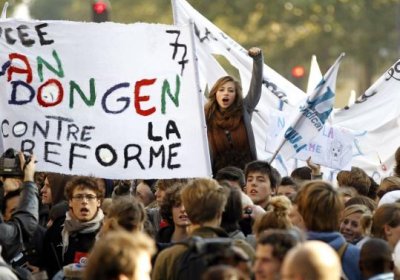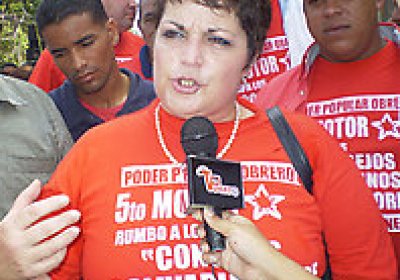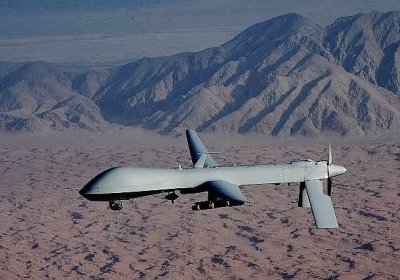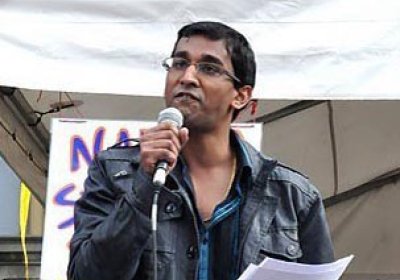BP abolishes safety ombudsman
“BP is disbanding the external safety ombudsman it set up after a fatal explosion at a company refinery in Texas in 2005 despite a growing number of concerns raised by the oil company’s employees.
“More than half the issues raised since the office was established in 2006 relate to BP’s operations in Alaska.
“BP said it would not extend the office’s tenure beyond June.
“The move comes less than a fortnight after the company announced it was setting up a new internal safety function, led by its head of safety and operations, Mark Bly.
857
Workers and students mobilised in their millions on October 12 in the fourth and largest day of action in the past month against laws that will reduce workers’ pension entitlements.
The protests and strikes came as the Senate passed aspects of the pension bill that will see an increase in the retirement age from 60 to 62 years of age and increase the period of time workers must work to receive a full pension.
The protests show growing polarisation over who should pay the price for the economic crisis in the lead up to national strikes on October 16 and 19.
About 40 people attended the launch of a No New Coal campaign by Safe Climate Perth on October 10. The launch took place as part of the 350.org “global work party” — an international day of action involving more than 7000 events around the world.
As part of the campaign, activists aim to get 10,000 signatures in 10 weeks on a petition opposing new coal developments in Western Australian.
The rescue of 33 miners in Chile on October 14 is an extraordinary drama filled with pathos and heroism. It is also a media windfall for the Chilean government, whose every beneficence is recorded by a forest of cameras.
One cannot fail to be impressed. However, like all great media events, it is a facade.
The accident that trapped the miners is not unusual in Chile and the inevitable consequence of a ruthless economic system that has barely changed since the dictatorship of General Augusto Pinochet.
In the aftermath of a failed coup attempt on September 30, left-wing Ecuadorian President Rafael Correa has vowed to deepen his “citizen’s revolution” in the small Andean country.
After the coup attempt by sections of the police and armed forces failed amid pro-government protests, Correa’s approval rate has surged to 75% in some polls.
In response, Correa, said his government had not done enough to implement its pro-people program and would radicalise its project to build a “socialism of the 21st century”.
On his TV show Alo Presidente on October 3, Venezuela’s President Hugo Chavez drove tractors and inspected corn crops as he pledged to accelerate land reform and increase the government’s share of food production and distribution.
Chavez announced the nationalisation of the agricultural supplies company Agroislena and the Venezuelan properties of the British Vestey Group.
The show took place in Guarico state, where Chavez’s United Socialist Party of Venezuela (PSUV) won most of the state seats in the September 26 National Assembly elections.
The Australian-led Regional Assistance Mission to Solomon Islands (RAMSI), involving involves police and soldiers, is set to continue its occupation of the Pacific island for at least “five to six years”, despite a change of government in the Solomon Islands.
Danny Philip was elected prime minister of the Solomon Islands by parliamentary vote on August 25, the Solomon Star said, after the August 4 general elections in which 25 out of 50 seats changed hands.
Factory workers from the Venezuelan chemical and lubricant company Veneco held a demonstration on the evening of October 10 in Carabobo state to show their support for the company’s nationalisation.
President Hugo Chavez announced the nationalisation that afternoon.
Jose Martinez, the general secretary of the Venoco workers’ union, said: “We are endorsing this takeover that will bring us many benefits.
“It will bring a change from the capitalist mode to the socialist mode and we are going to strengthen our company.”
Western Australian Liberal Premier Colin Barnett has said many of the 200 remote Aboriginal communities in WA will be shut down.
ABC Online reported on October 14 that Barnett said: "There's no doubt that under policies really initiated by the Federal Government, small, isolated Aboriginal communities were promoted.
"The reality is that there's no employment prospects in those areas, or very limited."
Barnett’s comments were in relation to the small community of Oombulgurri, where there are 50 residents and 14 public servants.
On October 3, US authorities warned US citizens travelling in Western Europe that there was an increased threat from Islamist terrorism. The same day, British authorities cautioned their citizens travelling in France or Germany. France, for its part, issued a warning for French nationals visiting Britain.
The nature of the supposed terrorist threat was unspecified. The media breathlessly speculated about planned “Mumbai-style” attacks.
Banning burqa not progressive
Dave Bell is welcome to his opinion about the “idiocy” of wearing the burqa (GLW #856). Since he dislikes it so much, I suggest he refrains from wearing one.
Yet his demand that socialists line up with the call from Christian fundamentalist politicians in Australia to ban the burqa is wrong, dangerous and is not feminist.
This year is the 15th anniversary of the Nargar Kovil school massacre in Tamil Eelam, the Tamil area of Sri Lanka. On September 22, 1995, the Sri Lankan Air Force (SLAF) bombed Nargar Kovil Maha Vidyalayam schoolyard, which was crammed with 750 children on their lunch break. Reports of the number of children killed vary from 26 to 70. Twelve of the children killed were six or seven years old. One hundred and fifty were injured, including 40 seriously. Twenty-two children had their limbs amputated. Ten of the amputees were under 12.
- Previous page
- Page 2
- Next page










